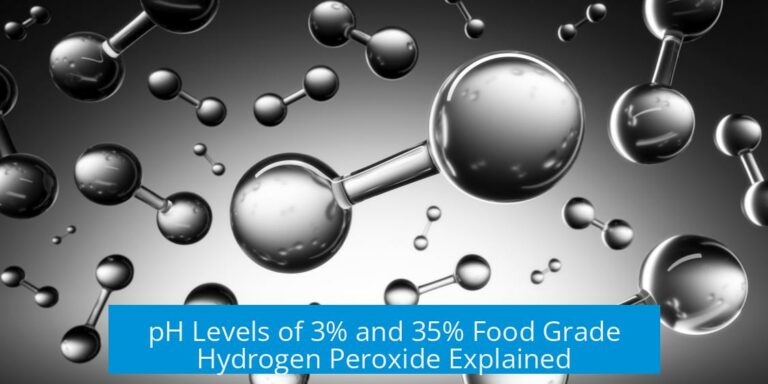Why Is It So Hard to Find a Job?
Finding a job proves difficult due to a mix of lack of relevant experience, challenges in the job market, qualification mismatches, resume issues, industry realities, and geographic constraints. Each factor pairs with others, creating a complex job search environment, especially for recent graduates and those in specialized fields like chemistry.
1. Lack of Relevant Experience
Many job seekers struggle because they lack practical experience essential to workplace success. Employers often seek candidates who already possess hands-on skills rather than theoretical knowledge alone.
- Employers expect familiarity with basic lab equipment and procedures such as dilutions, measurements, and weighing.
- Industry roles focus on applicants having experience using specific instruments, not just academic coursework.
- Positions such as quality control chemists tend to have high turnover and provide opportunities for new analysts but still require some foundational skills.
New graduates often face a catch-22: they need experience to get hired but cannot obtain experience without a job.
2. Job Market and Location Challenges
The economic environment and geographic location heavily impact job availability. Certain regions offer more opportunities for specific careers than others.
- Regions with robust biotech or chemical industries, such as the Northeast US, San Diego, and the San Francisco Bay Area, typically have more job openings.
- Some states or cities, including parts of the Southwest, have fewer chemistry-related positions, making job hunting more difficult.
- Relocating to these hubs can significantly increase employment prospects but may present personal and financial challenges.
In many cases, the scarcity of jobs in a desired location demands flexibility in where applicants seek employment.
3. Degree and Qualification Issues
Degree level and field relevance influence job eligibility and salary expectations.
| Degree Level | Typical Outcomes |
|---|---|
| Bachelor’s in Chemistry | Often leads to technician-level roles with moderate pay |
| Master’s in Chemistry | Similar pay to bachelor’s with limited advancement unless accompanied by experience |
| Ph.D. in Chemistry | More opportunities in R&D but fewer positions overall |
Academic programs frequently lack training in industry-specific skills, further complicating job readiness.
4. Resume and Application Problems
Poorly crafted resumes reduce chances of landing interviews. Many applicants submit documents riddled with errors or irrelevant information.
- Tailor each resume to the specific job.
- Use action verbs to describe achievements.
- Quantify results where possible.
- Highlight critical soft skills such as teamwork and communication.
- Always include a cover letter that references the company’s mission.
- Upload documents in formats compatible with Applicant Tracking Systems to avoid automatic rejections.
Interview preparation and application customization can significantly improve job prospects.
5. Industry Realities and Job Types
The chemistry sector exhibits distinct employment patterns and limitations.
- Many positions classify as low-paying technician roles with limited progression.
- Contract work predominates, often with no benefits or long-term security.
- There is stiff competition among candidates with degrees in chemistry, biochemistry, and related fields, as employers view qualifications similarly.
- Large companies offer more pathways to career advancement and skill building.
Understanding the market helps job seekers target realistic and strategic career options.
6. Alternative Career and Strategy Suggestions
Expanding job search methods can increase chances of gaining employment and experience.
- Consider roles like lab technician or quality control entry points.
- Explore related industries such as food science, pharmaceuticals, cosmetics, environmental chemistry, or agriculture.
- Look into contract and temporary positions as opportunities to gain practical skills.
- Use recruitment agencies and career services for guidance and placement assistance.
- Consider geographic mobility to access regions with denser job markets.
- Explore governmental or military roles that offer security clearances and national lab opportunities.
- Maintain supplementary employment in unrelated fields as needed while continuing the job search.
Flexibility and persistence increase the likelihood of finding suitable employment over time.
7. Company and Salary Insights
Salary structures and corporate environments impact career satisfaction and progression.
| Company Examples | Starting Salaries | Industry Notes |
|---|---|---|
| Pfizer, Intel, Fujifilm, Zoetis | $65,000 – $75,000 for entry-level chemistry roles in biotech and manufacturing | Large companies with growth potential and benefits |
| Contract Jobs | Approximately $15/hr | Short-term roles, limited advancement, no benefits |
Many holders of bachelor’s or master’s degrees earn similar wages, particularly when experience is minimal. Moving into management or business roles tends to increase income.
8. Psychological and Emotional Factors
The job search’s challenges affect emotional well-being significantly.
- Prolonged unemployment can cause frustration and self-doubt.
- Working outside the field, though financially necessary, may lead to feelings of giving up on personal dreams.
- Support networks, positivity, and treating interviews as conversations can improve resilience.
- Knowing others face similar struggles helps normalize the experience.
Mental health must be considered an important part of career pursuit.
9. Interview Preparation
Successful interviews require preparation and strategic communication.
- Research the company’s background and mission.
- Practice explaining how skills and experiences align with job requirements.
- If lacking specific skills, show eagerness to learn and adapt.
- Ask thoughtful questions demonstrating engagement and interest.
- Introduce yourself confidently, emphasizing strengths relevant to the role.
- Rehearse responses to common interview questions and scenarios.
Effective interviewing increases chances of converting applications into offers.
Key Takeaways
- Lack of practical experience presents a major obstacle for job seekers, especially recent graduates.
- Geographic location influences job availability; relocation may be necessary for better opportunities.
- Academic qualifications alone often do not ensure employment; industry skills and certifications matter.
- Resumes and cover letters must be tailored and error-free to pass application screening.
- The chemistry job market is competitive, with many low-paying technician roles and fewer advanced positions.
- Alternative career paths and flexible strategies improve chances of gaining employment.
- Interview preparation and employer research are crucial to success.
- Emotional resilience and support can help manage the stress of prolonged job searches.
Why does lack of experience make it hard to get a job in chemistry?
Employers expect candidates to know lab equipment and procedures. Classroom knowledge alone often isn’t enough. Many jobs prefer people with hands-on lab experience. Without it, candidates must prove skills elsewhere to stand out.
How does location affect job opportunities in chemistry?
Job availability varies by region. Some areas like Boston or San Diego have more chemistry jobs. Living in places with fewer jobs makes finding work harder. Relocating can open better chances but isn’t always possible.
Can a bachelor’s degree alone guarantee a chemistry job?
No. Many employers prefer candidates with work experience over just degrees. A bachelor’s degree may qualify you for entry roles but limits access to higher-paying research jobs. Practical skills matter as much as education.
What are common resume mistakes that reduce job chances?
Poor grammar and generic resumes often reduce callbacks. Tailoring your resume to each job and highlighting relevant skills helps. Including a cover letter and quantifying achievements make applications stronger.
Are there alternative paths to finding a chemistry-related job?
Yes. Entry-level roles like quality control or technician jobs are good starts. Using recruiting agencies or exploring related fields like pharmaceuticals can help. Gaining security clearance or moving locations may improve options.





Leave a Comment